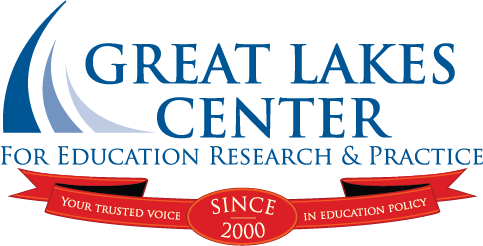
Think Twice Weekly Report
NOVEMBER 4, 2023 - NOVEMBER 10, 2023
The Think Twice Weekly Report compiles public education-related policy reports, research and articles of interest to policymakers, educators and stakeholders. This list is not exhaustive but is meant to highlight recent reports that may be used to support or undermine the work of our subscribers in supporting public schools. We encourage you to take a moment to scan these reports and determine if they may be used by policy makers to assist or erode your mission.
 Policy Reports
Policy Reports
Discipline Policy
Source: Ed Trust
Date: 11/2/2023
Creating Safer Schools: A Case Study
School safety and student well-being are crucial to the social, emotional, and academic development of young people. Simply put, students learn better when they feel safe. Many districts have turned to school security measures that offer visible signs or outward appearances of safety; however, other approaches - those that create positive and inclusive school climates - both support students' well-being and more effectively result in safe learning environments. This mixed-methods case study examines two urban school districts in the United States. After public calls to end policing in schools, leaders in these districts reformed both policy and practice to support student safety.
Student Achievement
Source: TNTP
Date: 11/8/2023
FALSE SIGNALS: How Pandemic-Era Grades Mislead Families and Threaten Student Learning
In the aftermath of the pandemic, public schools nationwide face profound challenges. Student test scores are down, absenteeism is at an all-time high, and educators are working tirelessly to bridge the learning gap. But research shows families believe that everything is back to normal or will be soon. Our new report, written with EdNavigator and Learning Heroes, explores this disconnect by looking at the relationship between attendance, learning, and grades-and the critical signals those grades are sending to families. We partnered with two school districts to analyze their data both before and after the pandemic. Across the board, more students were both chronically absent and not yet on grade level. But their grades, families' most trusted indicator of academic standing, tended to remain the same, or were even higher.
Teacher Education, Quality, and Professional Development / Reading Instruction
Source: NCTQ
Date: 11/7/2023
False Assurances: Many states' licensure tests don't signal whether elementary teachers understand reading instruction
NCTQ's new analysis of the quality of reading licensure tests required for elementary teachers reveals not only some bright spots and strong test options used in some states, but also systematic weaknesses in the tests many states use to vet new teachers. While this analysis focuses on tests required for general elementary teachers' certification, every teacher of elementary-age students, including those certified in special education or teaching English learners, should demonstrate their knowledge of reading instruction.
 Reports Reviewed
Reports Reviewed
GLC seeks to ensure that policy briefs impacting education reform are based on sound, credible academic research. Below are reviews conducted with GLC support.
Review of The 123s of School Choice: What the Research Says About Private School Choice Programs in America, 2023 Edition
Source: EdChoice
Reviewed by: Christopher Lubienski, Indiana University
The 2023 (fifth) edition of a semi-regular EdChoice report about school-choice studies is billed as an updated overview of the varied and often contested research on outcomes in voucher-like programs that provide public funding for private schools. But like earlier editions, it uses flawed methods that tally certain voucher studies finding impacts on any subgroup, even if there was no effect on most students. There is little to no accounting for the studies' sampling, quality, generalizability, or other important factors.
Christopher Lubienski of Indiana University reviewed The 123s of School Choice: What the Research Says About Private School Choice Programs in America, 2023 Edition and found fault in its study-selection issues, a mis-weighting of studies of varied value, and a simplistic and often misleading design.
 What We're Reading
What We're Reading
Research and articles that we want to highlight for subscribers as potential resources:
School Pulse Panel: Responses to the pandemic and efforts toward recovery
By: National Center for Education Statistics
The School Pulse Panel (SPP) is a monthly data collection of vital information in public education. SPP began as a response to the COVID-19 pandemic and served as a primary source of information regarding public schools' response to the pandemic. Beginning in the 2023-24 school year, SPP is expanding to collect data on a range of topics that have relevance for federal policymakers, stakeholders within the U.S. Department of Education, public school leaders across the country, and the general public.
2023 school shootings outpace record high from 2022
By: Naaz Nodam, K-12 Dive
School shootings - on the overall rise for decades - have broken last year's record high at 306 shootings with just under two months left to go in the year.
Illinois Becomes First State To Roll Back School Voucher Program
By: Peter Greene, Forbes
The Illinois House has adjourned until January 16, 2024 without passing an extension to the state's voucher law, which starts expiring on January 1, 2024.
LGBTQ+ issues increasingly targeted in K-12 censorship bills
By: Anna Merod, K-12 Dive
In 2021, legislators focused on banning The 1619 Project. This year LGBTQ+ issues have become the primary target in classroom censorship efforts.
How a George Floyd book event at Whitehaven H.S. got squeezed by Tennessee law
By: Laura Testino, Chalkbeat
This event basically got censored out of fear of violating some law,” said Jason Sharif, head of Respect the Haven. “With us being a predominantly Black city, a predominantly Black school district, you cannot keep books like this or stories like this from being told to Black students.
